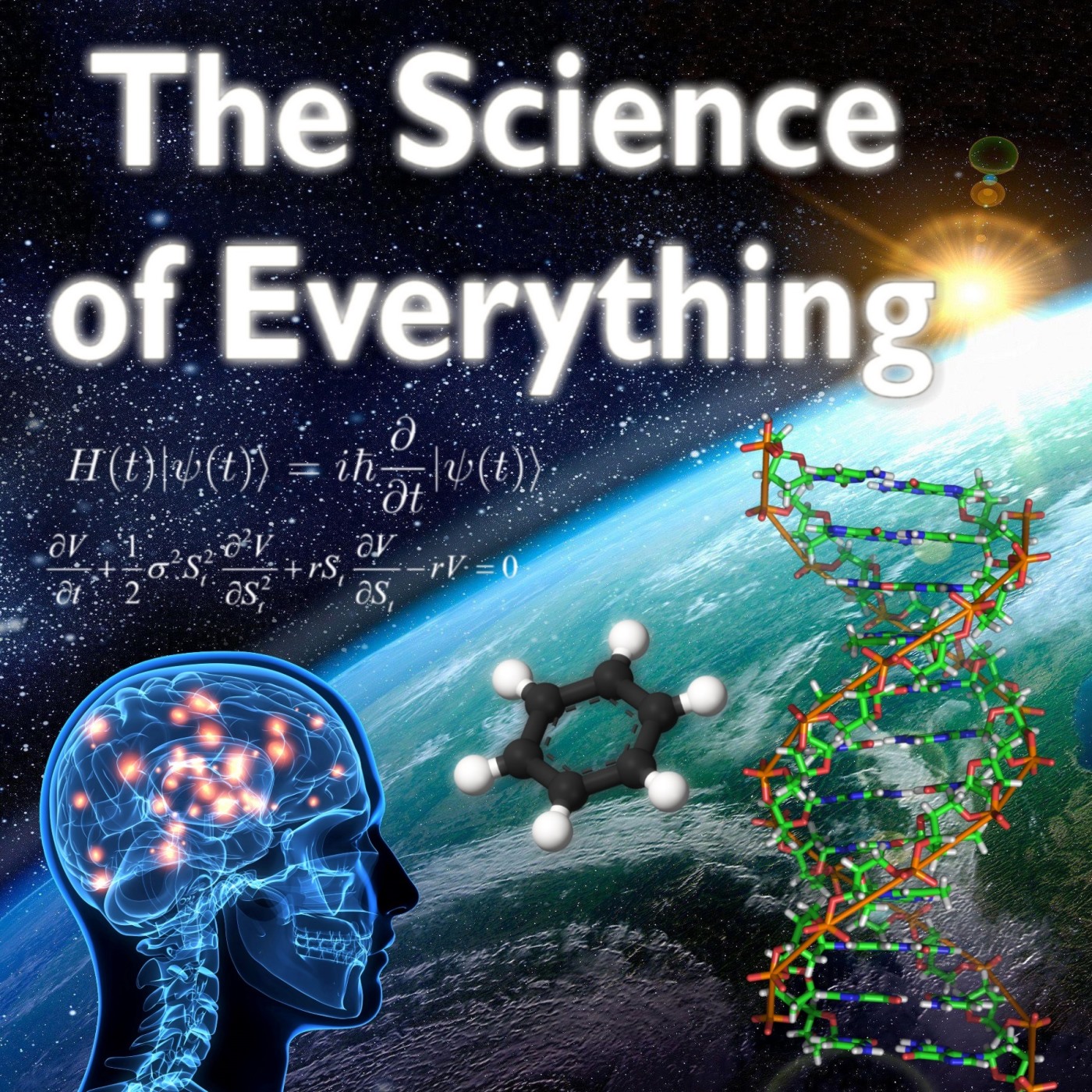

The Science of Everything Podcast
James Fodor
I discuss a variety of topics in both the natural and social sciences, exploring the many fascinating insights that the scientific method yields about the world around us.
Episodes
Mentioned books

Mar 10, 2013 • 53min
Episode 45: Vision Part 1
We commence our grand journey to understand the visual system by examining the eye, its anatomical structure and physiological properties. I discuss image formation in the eye, including an explanation of the role of the lens, iris, and cornea. I also explain the phototransduction, the fascinating molecular process by which photons falling on the retina are converted into neural signals that the brain can interpret. Recommended prelistening: Episode 18 - Biochemistry Basics, Episode 25 - Tissues, Organs and Systems, Episode 32 - Light and Optics, Episode 38 - Neurons and Synapses.

Jan 12, 2013 • 43min
Episode 44: Cell Division
A discussion of the cell cycle and cell division, beginning with an overview of chromosomes and chromosome structure, and then proceeding through a detailed discussion of the G1, S, and G2 stages of interphase, and the prophase, prometaphase, metaphase, anaphase, telophase and cytokinesis phases of M-phase. I conclude the episode with a discussion of cell-cycle regulation, including the role of cyclin-dependent kinases, cell checkpoints, and growth factors. Recommended prerequisites are Episode 10: The Cell, Episode 18: Biochemistry Basics, and Episodes 34 and 35: DNA Structure and Function.

Dec 30, 2012 • 52min
Episode 43: Electric Forces and Fields
An overview of the basics of electric charges, electric fields, and electric potential energy. I also discuss how objects become charged, how charged particles interact via Coulomb’s Law, how electroscopes work, and how batteries generate voltage. Recommended prerequisites are Episode 9: Matter and Molecules, and Episode 17: Energy, Work, and Momentum.

Dec 28, 2012 • 36min
Episode 42: Gases and Gas Laws
A discussion of the properties and behaviour of gases, focusing on the kinetic theory of gases and the ideal gas law. I also discuss the thermodynamic behaviours of gases, gas partial pressures, and PV diagrams. Recommended prerequisites are Episode 9: Matter and Molecules and Episode 13: Newtonian Mechanics.

Dec 25, 2012 • 39min
Episode 41: Flotation and Fluid Mechanics
A discussion of the behaviour of fluids, including an overview of the concepts of fluid pressure and Pascal’s Principle. I also discuss Archimedes’ principle of buoyancy and its application to why objects float, and Bernoulli’s Principle of the relationship between fluid speed and pressure, and how this can be applied (and misapplied) to explaining how aeroplanes fly. Recommended prerequisites: Episode 13 Newtonian Mechanics, Episode 27 Intermolecular Bonds and Phase Transitions.

Dec 18, 2012 • 1h 8min
Episode 40: Gun Control
A science-based discussion of the issue of gun control in the United States. After reviewing some basic statistics about crime and gun ownership, I examine the empirical evidence concerning the relationship between gun ownership and violent crime, highlighting the many difficulties associated with such studies and the limitations of this literature. I then discuss some more specific aspects of the gun control debate, including the question of who commits most violent crimes, how deadly guns are compared to other weapons, and how criminals acquire guns. I conclude with a discussion of the evidence for and against various types of gun control measures, and some thoughts on contemporary US gun culture and its impact on gun policy.
If you enjoyed the podcast please consider supporting the show by making a paypal donation or becoming a patreon supporter.
https://www.patreon.com/jamesfodor
https://www.paypal.me/ScienceofEverything

Dec 6, 2012 • 50min
Episode 39: Sovereignty and the State
An overview of the state as understood in political science, including a discussion of the meaning of terms like ‘state’, ‘country’ and ‘nation’, and a summary of some of the different types of states, including unitary, federal, and confederal. I also discuss some of the core principles of government in modern states, including sovereignty, the rule of law, separation of powers, and separation of church and state.

Nov 29, 2012 • 52min
Episode 38: Neurons and Synapses
A discussion of the neuron, the fundamental cell of the brain and the nervous system, including an overview of its morphology and physiology. I also discuss the generation and propagation of action potentials, including the role of graded potentials, voltage-dependant ion channels, and myelination. The episode concludes with an overview of synapses and the important role of neurotransmitters.

Nov 22, 2012 • 48min
Episode 37: Oxidation and Reduction
An overview of oxidation, reduction, and redox reactions, including a discussion of the definitions of these basic concepts, and an explanation of how they relate to oxidation number and electronegativity. We then apply these concepts to several common examples of redox reactions, including combustion, rust, batteries, fuel cells, and respiration.

Aug 12, 2012 • 48min
Episode 36: Consumer Choice Theory
A discussion of the theory of consumer choice in economics, including an outline of consumer preferences and the axiomatic assumptions economists make about them, a discussion of the realism of these assumptions, and an explanation of how preferences are used to derive consumer utility functions and demand curves. These basic concepts are then applied to understand consumer behaviour in an analysis of substitution and income effects, complementary and substitute goods, and elasticity of demand. Recommended prerequisites include Episode 12: The Price System and Episode 16: Profits and Competition.


